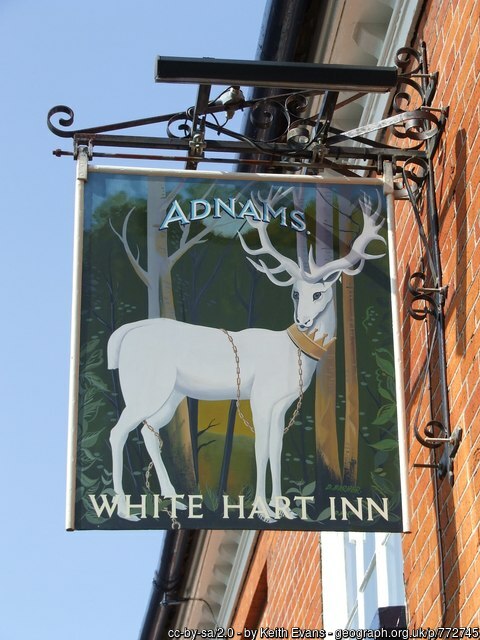Expectation management: this is not very profound, just something I saw today which struck a chord, resonated, etc. [insert other music-related references …]
It’s a line in a plea roll entry from the reign of Edward IV, from Easter term 1482.[i] The case is not a pleasant one (well, it is in a ‘criminal’ roll …). You know it’s going to be serious when the word ‘coroner’ appears early on – and this starts with an account of an inquest, on 10th January 1482, before Suffolk coroners, at Halesworth, on the body of John Hensted, who had been killed there.
John Hevnyngham, knight, and William Jenny, sjt at law, had been at Halesworth on 29th December, 1480, on a royal commission, dealing with a case about land rights, between John Laveraunce and William Goderyche, and were in a room of an inn called the Hart, in Halesworth.[ii] The inquest jury (and an indictment founded upon their narrative) said that a certain William Wingfeld, recently of Spexhall, Suffolk, got together a group of malefactors [6 men named, no amusing names, so I shall omit them – all grooms, tailors and similar] and attacked John Fayrechild, servant and clerk of William Jenney, as he was coming towards the room. They would have killed John F, had he not defended himself with a small ‘daggarr’ (note contrast with their swords and other not-small weapons …). Despite his heroic defence against the odds, the group overpowered John F and ‘decked’ him. Again, he was in peril of death, and would have been a goner, but was rescued in the nick of time by loyal types, ripped from the hands of the ne’er-do-wells and taken into the room. Wingfeld and his gang then started on John Hensted (who was in God’s and the king’s peace – it doesn’t actually say whether he was involved in the John F episode, but I imagine that is the idea …) and wounded him multipliciter et crudeliter, so much so that they killed and murdered him [never use one word where two will do …].
Afterwards [and this is the bit that grabbed me] one of William Wingfeld’s men, the groom Nicholas Petyt. celebrating John H’s death, said, in his native tongue, ‘I shall blowe a mote[iii] for his deth’ and straight away blew a high (or loud?) blast on a certain horn [which he happened to have about his person – though I suppose that is plausible …and rather appropriate with the whole hart/white hart theme …]. William Wingfield said, also in English ‘a man of Jenneys is slayn. I wold it had lighted upon his master’, and afterwards, William W and gang fled. William W received the others, knowing what they had done.
Later, in the King’s Bench, William W and four of his men turned up, waving a royal pardon which said the charge had been malicious. Who knows whether that was true or not, or what happened to Nicholas Petyt, who was not included in the pardon.[iv] An interesting bit of creative dialogue creation (‘verbals’ is the word that comes to my mind – have just been watching a rather good documentary series about ‘bent coppers’ in London in the 1960s-80s, who favoured this sort of elaborate lie when ‘framing’ individuals ..) anyway. Whether or not these words were spoken, why would they be included in the narrative? Is Petyt’s supposed remark, and celebration, about indicating definite guilt, inconsistent with the sort of hot-blooded, hot-headed killings which might be passed over as undeserving of capital punishment?[v] Might the words attributed to Wingfeld have been an attempt to suggest that he had wished to strike at a royal official, and get him into more trouble?
No answers to those at present, but here’s one I might do better with: why did this entry appeal to me? Well, I think there is something engaging, for the modern reader, in the ‘code-switching’ between Latin record and English reported speech in these records: it almost feels a bit comic, despite the situation, and it gives a sense of performance, of throwing the hands up and saying ‘do you know what, this is not going to work in scholarly Latin, here’s what was actually said …’ I know that there is a lot of work on this in literary studies – macaronic works etc. – but I think that plea rolls are a bit neglected as a linguistic/literary production, and that it would be very interesting to get legal historians and lit. scholars together to look at what these sources can tell us about English, and the sound of medieval England (or plausible versions thereof) at some point. It has been done to some extent with defamation, but there is a lot more in there, if you have the patience to do a bit of ‘listening’.
GS
29/8/2021
[i] KB 27/882 Rex m.9; AALT IMG 173,
[ii] Excitingly, there is an old pub called the White Hart in Halesworth. A quick scan shows claims that it goes back to the 17th C – could it be the same one? Image above is its sign.
[iii] According to the ME Dictionary online, a ‘mote’ is one note on a hunting horn. New one on me.
[iv] The pardon is calendared: CPR 1476-85 p. 242
[v] Note that Petyt is accused, alone, of the offence, here (and next membrane) and here. And he is called a ‘vagabond’ rather than a groom … interesting ‘spin’ going on somewhere … This one is v. close to the story on the plea roll, but implicates the others, and doesn’t call him a vagabond! The matter of ‘vagabond’ as an ‘addition is debated in a (connected?) YB report here.
